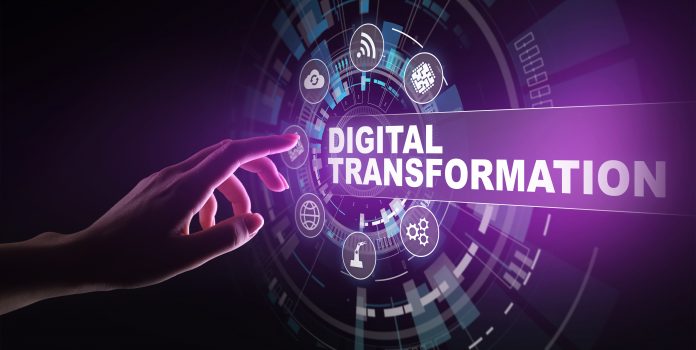Alexander Zeitelhack, Associate Dean, Berlin School of Business and Innovation, shares his perspective on digital transformation, transformation and paradigm change
What is so different with this digital change? This so-called “Digital Transformation”. Why is the impact in all fields of life so fundamental? The reason is that we are not only seeing obvious changes to the economy and society but we also slowly starting to understand that we can only embrace these changes if we accept the new paradigm(1) that is underlying it.
Yesterday’s paradigm (I call it the world of “Homo Faber”)(2) was seeing and experiencing a world designed by engineers and scientists; a place where we can take control and design the world through technology, according to our perspectives (wishes).
Henri Bergson defines this intelligence as the “faculty to create artificial objects, in particular tools to make tools, and to indefinitely variate its makings.”(3)
The new paradigm deals with taking control from the individual. It now seems to us that we no longer have individual design of our lives.
We need to accept the possibility that the software, the networks, the platforms and the algorithms may take control. They might even tell us our goals in life and define our values. This paradigm sees the individual human being as an object and not a subject anymore. This “Brave New World” paradigm is sold to us as a savior from all false doings which will bring us safety and security.
But this is also clearly connected with the fear of losing control within our personal lives. Many perceive this new paradigm as a danger. And it might be.
Now that we have adopted this new paradigm, we can look at the digital transformation of the economy, society and the individual. The importance of this two-step redesign of our thinking and perspective is so high because we need to answer those challenges on a higher level of skills. When it was good enough in 1990 to be able to steer and control machines or make calculations with spreadsheets, this is no sufficient anymore.
Today, we must apply ethics to algorithms and design new human value systems in organisations where humans and robots collaborate with each other.
And we do not train these skills in schools or universities – yet.
Technologies and society
Now it becomes clear that we need to update and improve our skill set for the transformation to become nontoxic. The Cambridge Analytica scandal showed this very drastically.
Ethics will have to become a subject in almost every educational context. Not only in universities, but also in school and vocational training.
Computational thinking also needs to be emphasised in all basic education branches. Coding as a general discipline, like reading and writing, will become common ground.
Algorithm transparency will need to become more prevalent in political discourse and legal frameworks. This will require governments to take action and pass proper legislation.
The right for our own algorithm will also be a fundamental right that will enhance the human rights debate for many years to come.
These perspectives will also be dividing the world into two ethical schools of thinking. The old discussion between Utilitarianism and Ethics of Kant will erupt again.
There will be those who give control to the “system” (China is the most prominent example right now) and others who will try to regulate and contain the power of AI (Europe is on this pathway momentarily). This will result in another dualism of human interaction and political debate.
Global change megatrends
Demographic change, robotics and AI will be the driver for change and transformation until 2050.
While the demographic problem is well known and can be extrapolated well into 2050, the other two drivers are still part of the unknown universe.
Any studies and research concerning artificial intelligence (AI) can only make reliable predictions until 2025. Anything beyond this point is pure speculation. This drives public speculation and the snake oil vendors for some time being. As we still lack professional hypotheses on this matter, there is a need for scientific research.
We know that automation and robotics can only increase productivity by a marginal 15% until 2030. By that time Europe, Japan and the U.S. will have lost 25% of their workforce to retirement. As such, AI or global migration of large-scale populations will have to make up the difference.
Much more research and academic training should be dedicated to these topics.
eGovernment
What is the goal here? Just having more productivity and better and more convenient services by governments? Or are the goals more towards nudging citizens into public policies and making them “more compatible” to government ideals?
We, again, have both those scenarios. It will be a big challenge for public servants such as chancellors, prime ministers or presidents to also introduce ethics into their policies in order to govern their people in a digital age. There, I see many threats to democracy, and this, therefore, calls for a new and open dialogue for an “open society”.
Future perspective
We need new value systems and responsibilities for citizens, businesses and politicians. Yes – it has to happen on a personal level. A systematic approach just by legislatures will not be sufficient. It takes the civil courage of a single person to make the difference. Personal ethics has to merge and morph into a public and common lifestyle.
The ideas from the “Economy for the Common Good” and the organisational form of NGOs will be the frontier of the future to design healthy and ethical economies in the age of the digital transformation.
References
(1) In science and philosophy, a paradigm (/ˈpærədaɪm/)( https://en.wikipedia.org/wiki/Paradigm) is a distinct set of concepts or thought patterns, including theories, research methods, postulates, and standards for what constitutes legitimate contributions to a field.
(2) Homo Faber refers to:
Homo faber (https://en.wikipedia.org/wiki/Homo_faber), a philosophical concept articulated by Hannah Arendt and Max Scheler
Homo Faber (novel) (https://en.wikipedia.org/wiki/Homo_Faber_(novel)), a novel by Max Frisch
(3) Henri Bergson (https://en.wikipedia.org/wiki/Henri_Bergson)











